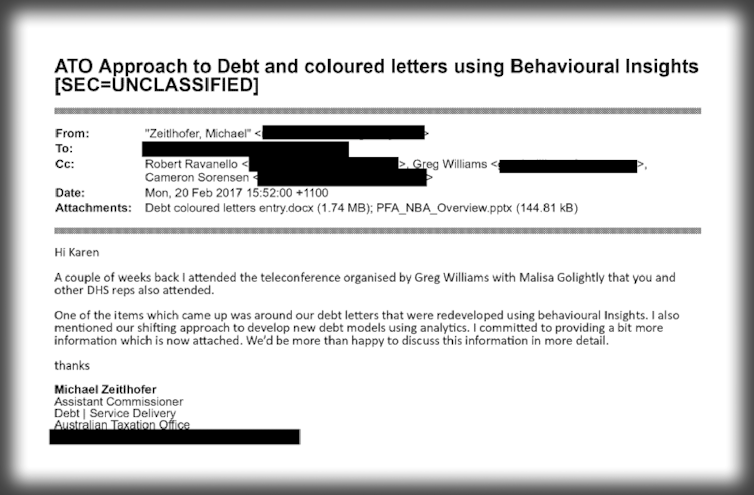Behavioural ‘experts’ quietly shaped robodebt's most devilish details – and their work in government continues
- Written by The Conversation

One of the things still worrying me about robodebt was the attention to detail.
By that, I am not referring to the crude system by which hundreds of thousands of Australians on benefits received letters between 2016 and 2019, wrongly demanding they repay Centrelink money they did not owe.
I am referring to the care with which the robodebt letters were designed – and the so-called science behind those devastating design decisions.
‘Nudging’ people to pay at all costs
What Centrelink wanted was for the recipients to quietly pay up, or go online and provide years of payslips they probably didn’t have, rather than jam up its switchboards asking questions.
The robodebt royal commission heard that details as specific as the colours of the letters were decided on after receiving advice from “experts in behavioural science”. (In the end, Centrelink went with black and white.)
So it made what Royal Commissioner Catherine Holmes found was a “conscious decision” not to include a phone number recipients could use to find out more.
That’s right, the letter didn’t include a phone number – a decision Holmes found was made “with the intention of forcing recipients to respond online”.
Where did the idea come from?
Holmes found it came from “behavioural insights”.







